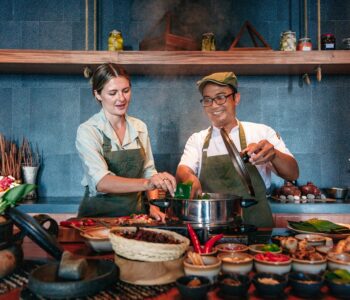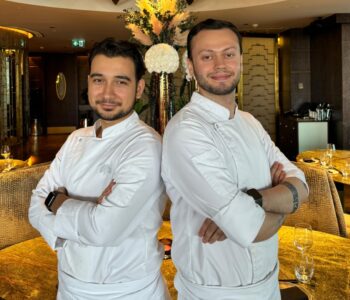Arak. Bali’s traditional spirit, used in both ceremony and celebration across the island. Many know the name or have savoured its distinct taste, but few are able to explain how arak Bali is made or where it really comes from.
In October 2021, NOW! Bali released a mini-documentary titled ‘ARAK – Made in Bali’, the second episode in our docu-series ‘Made in Bali’. The short film explores the age-old spirit, shedding light on how arak is made — highlighting the type of arak derived from the coconut tree. The film focuses on a particular arak producing village in the regency of Karangasem: Desa Tri Eka Buana, where more than 80% of the families still make their living from producing arak.
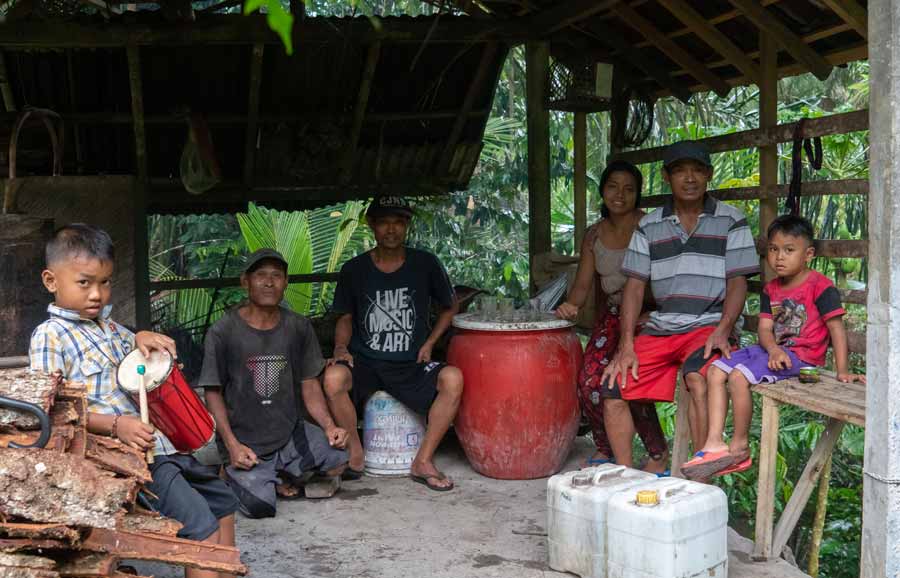
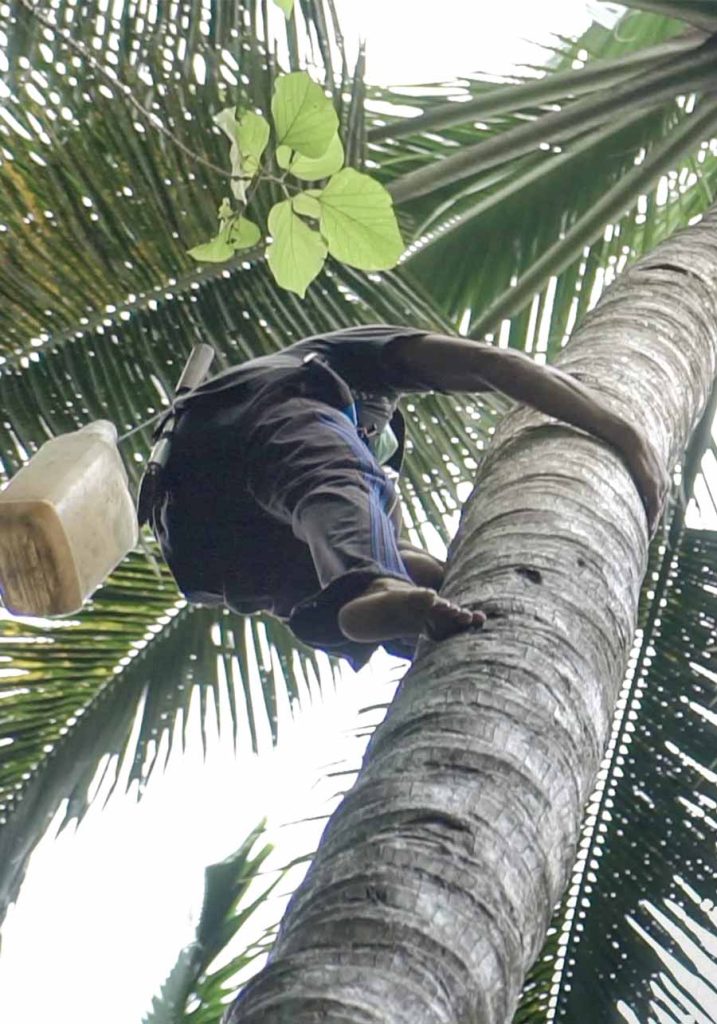
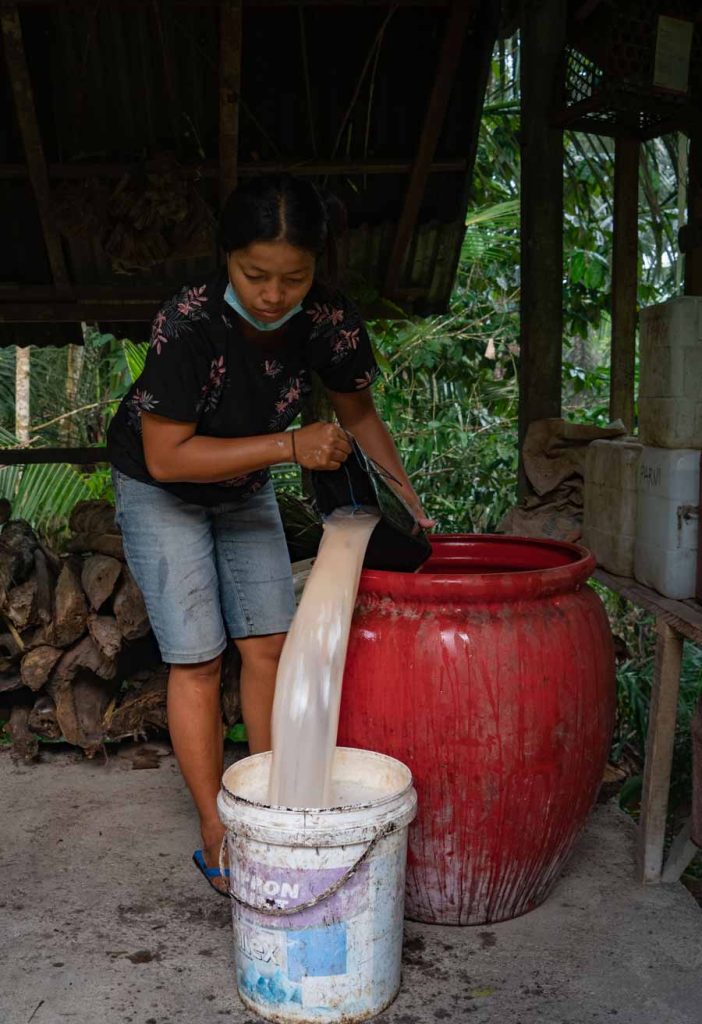
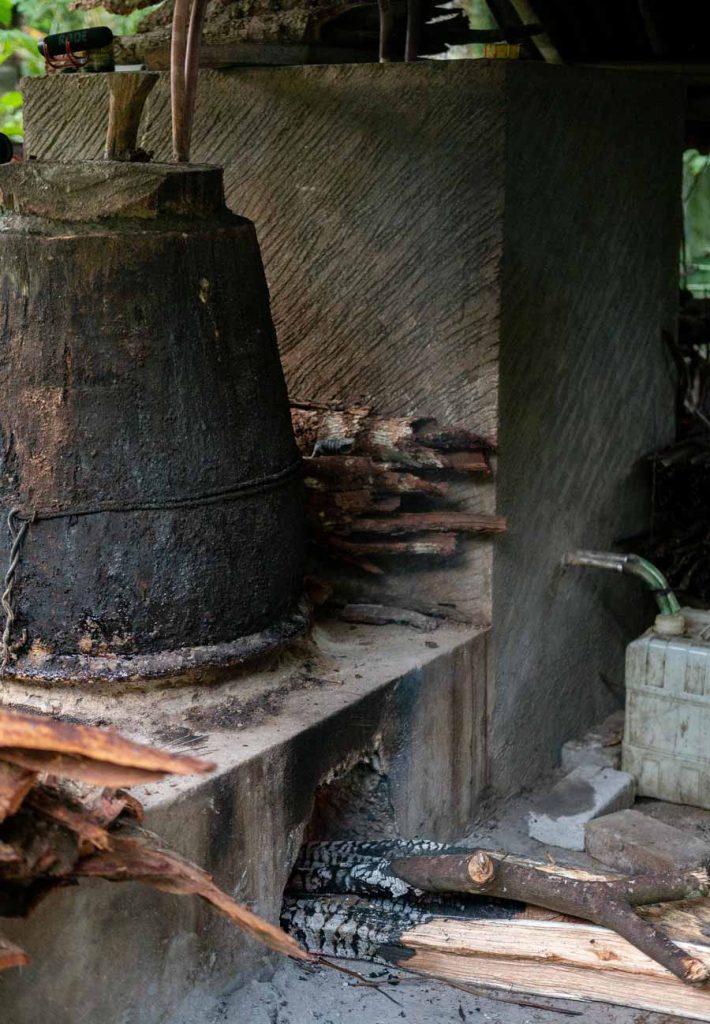
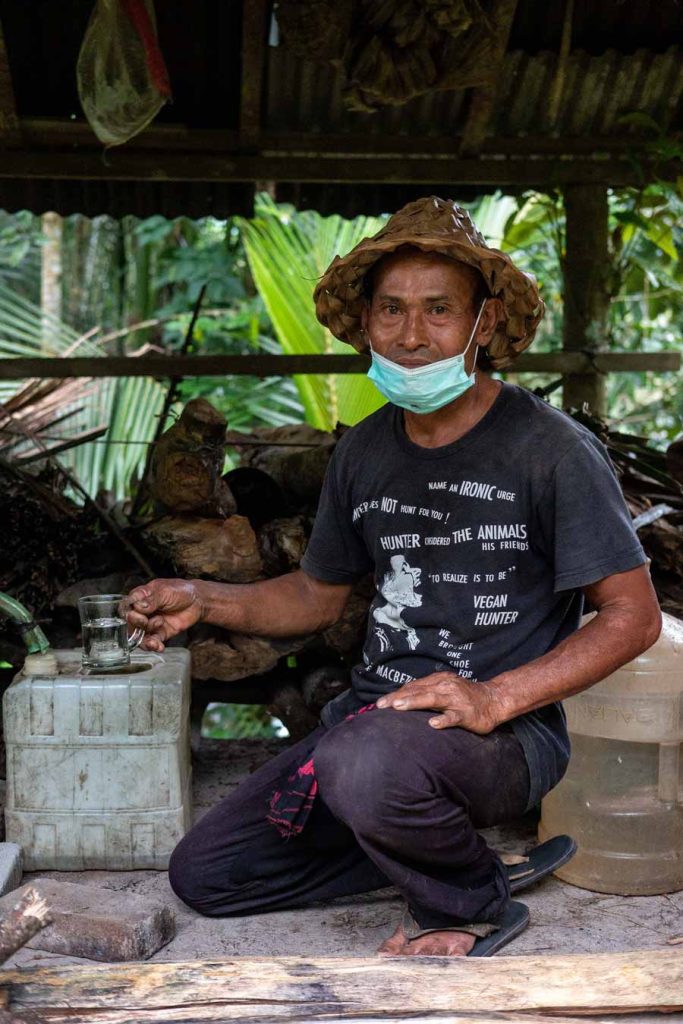
Whilst helping to explain how arak is produced, the 15-minute mini-documentary, also brings the lives and challenges of today’s arak farmers to the forefront, shared through the story of I Wayan Lemes Indrawan, a resident of Tri Eka Buana village. This story is told through beautiful cinematography, highlighting local livelihoods as well as the stunning environment of the Sidemen area, where the village is located.
With the arak industry currently at a crossroads, and the government slowly formalising its production with new regulations, the film shares the rustic, traditional side of arak production in Bali as reminder of the spirit’s original roots. It explores the current difficulties that today’s arak farmers face when it comes to licenses, production, health and safety.
The objective was to create a video that was both visually captivating yet simultaneously informationally rich, complete with a personal story. This was done in collaboration with our production partners, Genesis Creative Centre.
Ultimately, the aim of the film is to bring awareness of arak and arak producers across the island, to cement the spirit as a Balinese heritage product that must be celebrated and preserved — along with the traditional producers.
Watch Now: Arak – Made in Bali
Online Release: 31 January 2022 | 12PM (Bali Time)
To stay watch the Premiere release, set a reminder through the YouTube link below, or subscribe to our newsletter.
More stories on Arak Bali
Discover the interesting world of arak in Bali through our stories.
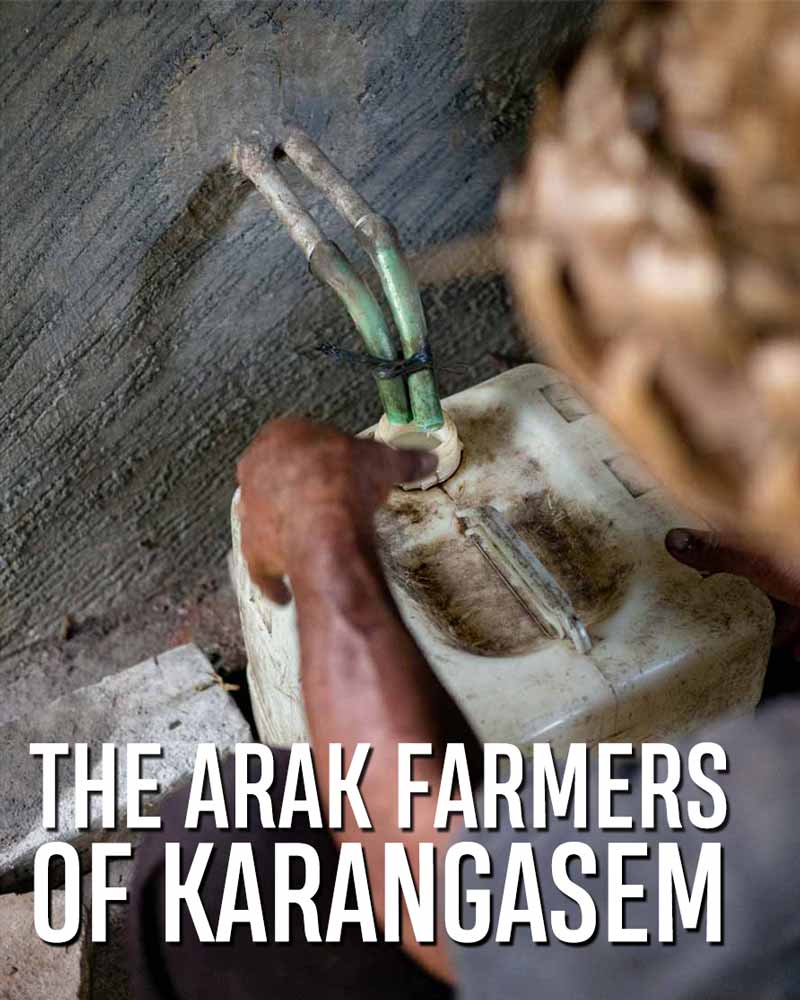
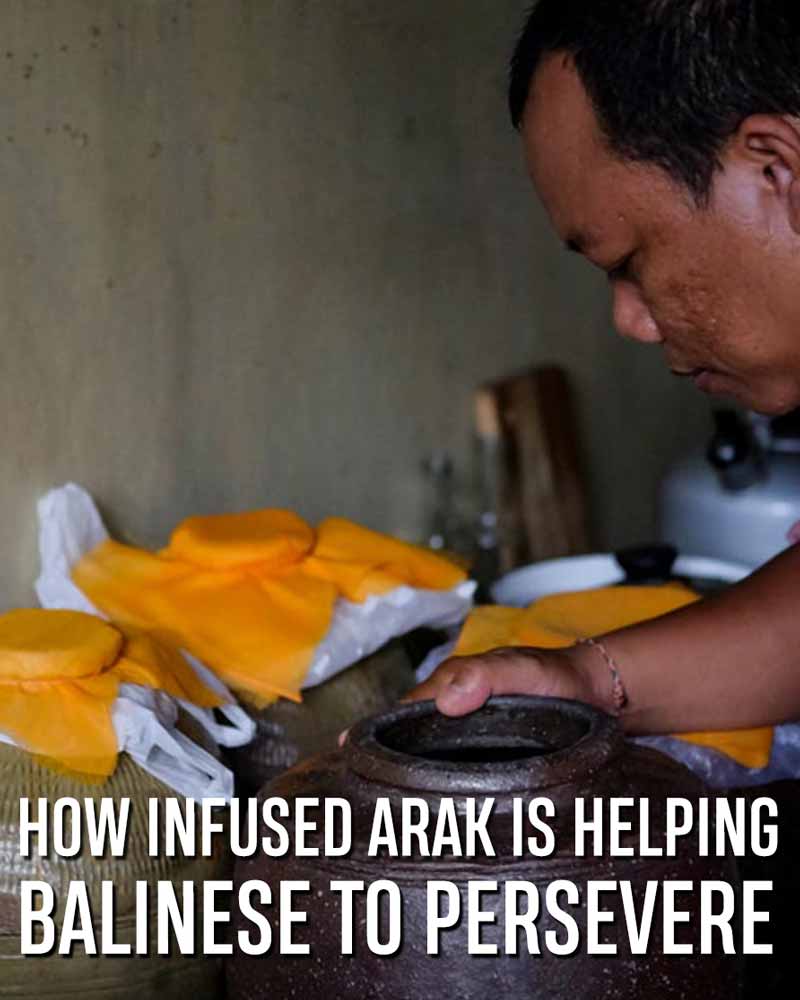
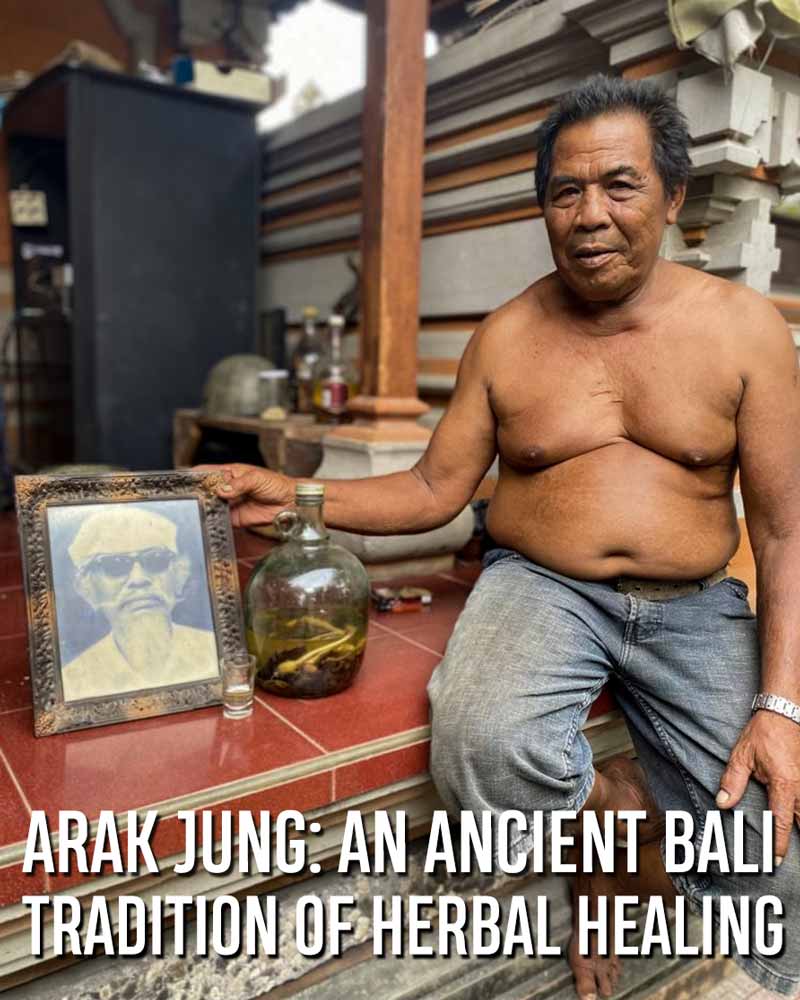
Arak Screenings and Events
From October 2021 to December 2021, NOW! Bali held multiple screenings across the island, partnering with venues that shared a belief in arak, supporting local traditions, artisans and crafts people. Screenings were held at:
• Telu Herb and Cocktail Garden, Four Seasons Bali at Jimbaran Bay
• Studio Eksotika, Desa Potato Head
• Village Square, Andaz Bali, Sanur
• The Suku Bali, Ubud
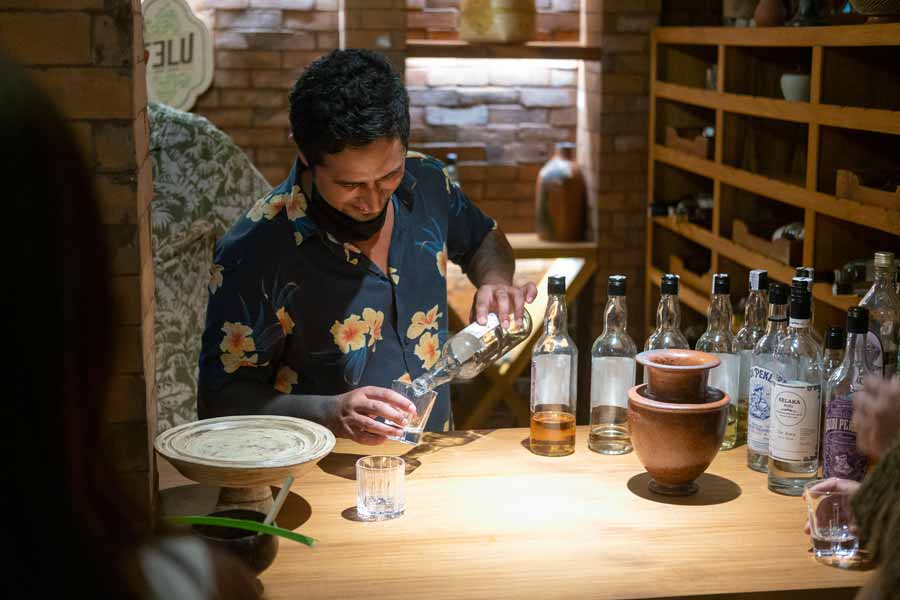
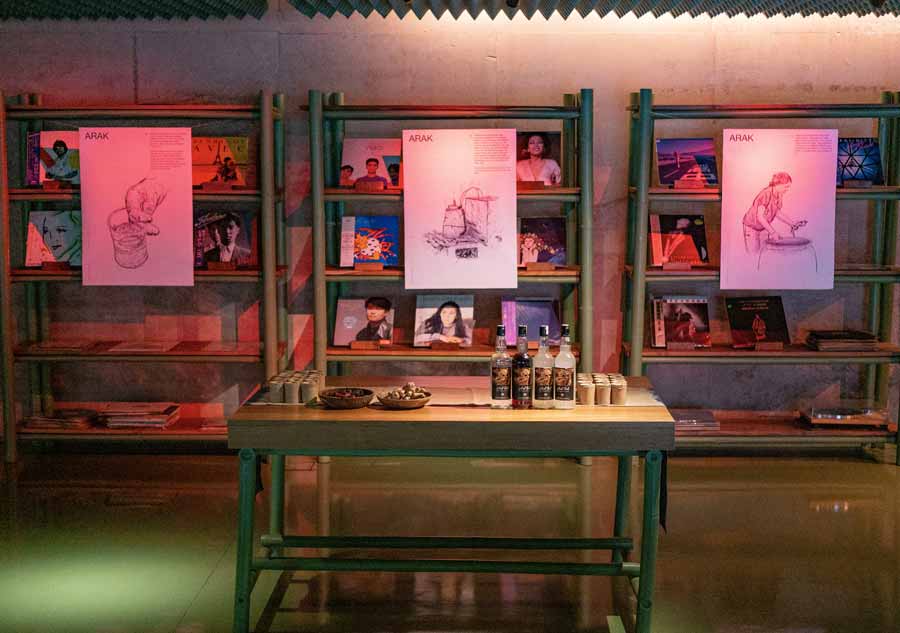
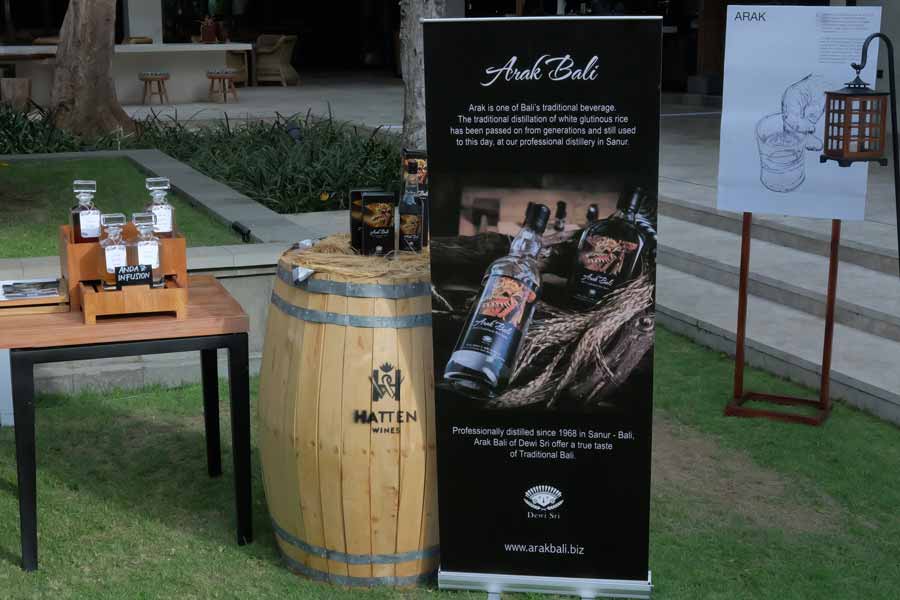
Each screening served arak cocktails, created by in-house mixologists, to showcase how the product could be enjoyed in Bali’s developing food and beverage industry. Arak was provided by Arak Bali Dewi Sri, one of Bali’s first professionally distilled and licensed arak companies, founded in 1968. The screenings also included an arak discussion and tasting journeys to give the audience a more rich, interactive experience.
The film — produced as an on-going collaboration between NOW! Bali Magazine and Genesis Creative Centre —is just one piece of the arak puzzle. You can explore more arak stories through the stories we share below:
About Made in Bali
Bali is home to artisans, hand-craftsmen and farmers, all of whom create special products here on the island. In NOW! Bali’s new mini-documentary series called ‘Made in Bali’, these products and their producers are put in the spotlight, with an aim to celebrate, capture and preserve their memory and to share them with culturally curious viewers from around the world.
With a focus on cinematography and one-on-one interviews with the producers themselves, Made in Bali is a medium for these local artisans’ and farmers’ crafts to be noticed and appreciated. From carvers to farmers, harvesters and creators, many of these industries are in their ‘last generation’. As these men and women work hard to improve their standard of living for their children, they simultaneously remove the next line of succession to take on their skills, farms or workshops after they have gone.
Documenting the various traditional skills that have existed for hundreds of years is a worthwhile project which NOW! Bali feels necessary to commit to. After all, who knows how long these producers and artisans will continue to exist.


